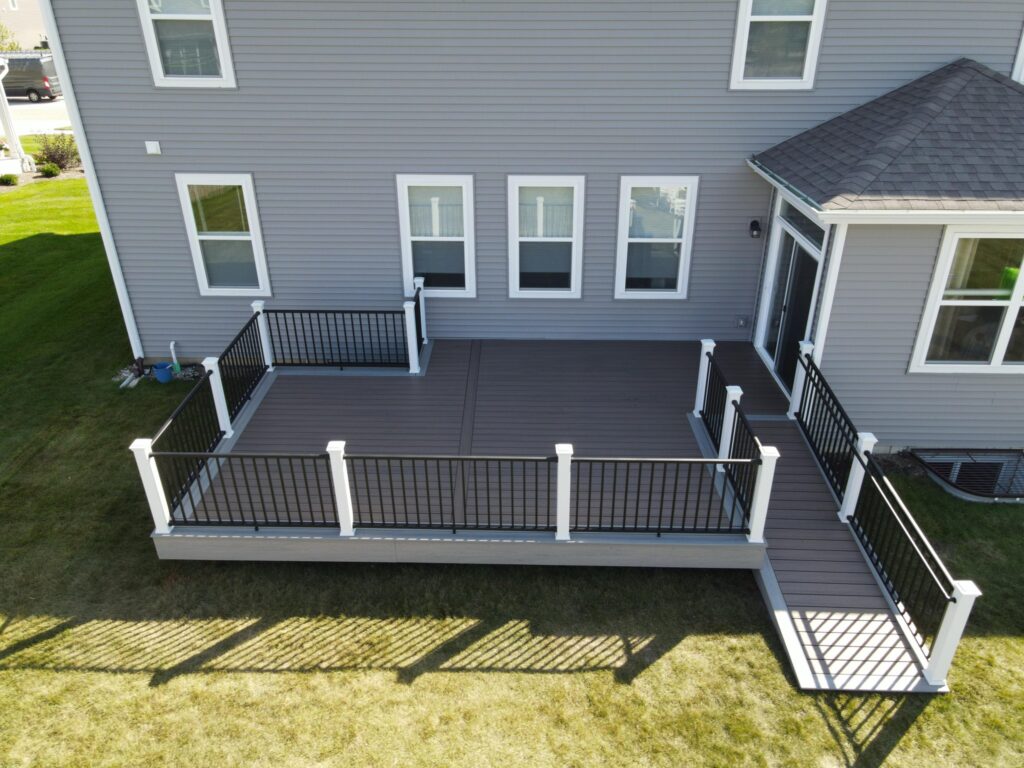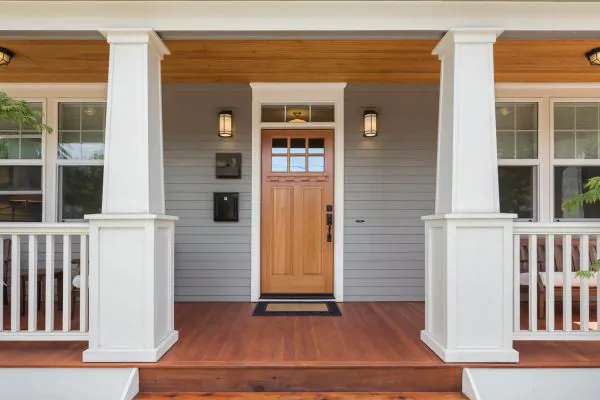Discovering Various Kinds and Benefits of Deck: A Comprehensive Overview
The outside deck is greater than just an extension of one's living space; it's a testament to individual design, a venue for social gatherings, and a haven to loosen up. The option of outdoor decking material considerably affects these facets, with options ranging from the classic allure of wood to the functionality of composite, and the longevity of aluminum. Understanding the nuances of these products is important, so let's begin our exploration, one deck type at a time.
Recognizing the Basics of Outdoor Decking Product
Outdoor decking product functions as the foundation of any type of deck job, dictating the overall looks, longevity, and capability of the last product. The market offers a vast variety of products, each with special attributes fit to various layout choices and environmental conditions. The option consists of natural wood, composite, plastic, aluminium, and also concrete. Timber, being the conventional choice, offers an ageless, traditional appeal. Compound, a combination of wood and plastic, supplies wood-like aesthetics with less maintenance. Plastic and aluminium supply contemporary, minimalistic options, while concrete is favored for its unparalleled longevity. The selection of product considerably influences the deck's life-span, maintenance needs, and resistance to aspects. Therefore, recognizing the fundamentals of outdoor decking material is critical for a successful deck task.
Benefits and Disadvantages of Timber Decks
In reviewing deck types, comprehending the pros and disadvantages of timber decks becomes important. This includes taking into consideration factors such as the type of wood picked and its effect on the deck's efficiency. The subsequent conversation will check out these factors in detail to supply a thorough view of the downsides and benefits connected with wood decks.

Timber Deck: Pros & Disadvantages
The beauty of timber decks can not be overstated. They exude an ageless appeal and warm aesthetic that many homeowners locate alluring. This natural material is versatile, permitting a variety of design opportunities, and can supply an excellent roi.
Nonetheless, wood decks additionally come with certain downsides. Its longevity can be less than various other outdoor decking products, especially if not correctly cared for.
Picking Your Wood Type

Checking out the Advantages of Compound Decking
Turning attention to composite outdoor decking, it supplies unique benefits. Its sturdiness outperforms standard wood in harsh weather, decreasing the demand for constant upkeep. It provides a pleasing visual allure with variable design choices.
Compound Decking Sturdiness Conveniences
Despite the huge selection of outdoor decking alternatives readily available out there, composite outdoor decking attracts attention for its sturdiness. This type of outdoor decking, made from a mix of timber and plastic, offers a resilient, durable system immune to elements that generally deteriorate other materials (Best Deck Builders Near Me). It doesn't splinter, split, or warp, guaranteeing a regularly smooth surface area for years. Moreover, it's immune to damage from bugs such as termites, contributing to its longevity. The fundamental resistance to fading, staining, and damaging is one more significant advantage. This makes it an ideal choice for high-traffic locations or exterior spaces exposed to visit this website extreme climate condition. In summary, the toughness benefits of composite outdoor decking offer a lasting, cost-efficient solution for outside home.
Upkeep of Composite Decks
Along with sturdiness, composite outdoor decking boasts a major benefit in regards to upkeep. Unlike typical timber decks, composite decks are not at risk to rot, warp, or insect damages, thus dramatically decreasing the requirement for normal repair work and replacements. They also need no sanding, paint, or staining, making them a time-saving choice for home owners. Cleaning up a composite deck is a simple task, typically just requiring a sweep or a gentle clean with a light soap and water. The low-maintenance nature of composite decks not just gives ease of upkeep but additionally adds to their lasting cost-effectiveness. This functional advantage, combined with the product's integral resistance to weathering and degeneration, makes composite outdoor decking a preferred option for lots of individuals seeking a convenient and resilient decking remedy.
Aesthetic Charm and Variability

The Rising Popularity of Light Weight Aluminum Decks: Why Select Them?
As the need for durable and low-maintenance outdoor decking surges, aluminum decks are progressively ending up being the go-to choice for numerous property owners and home builders. These decks, made from a light-weight yet tough metal, use a number of advantages over conventional timber or composite decks. To begin, aluminum is normally immune to the aspects, meaning it will not warp, split, or fade in time. This makes it a cost-efficient choice in the lengthy run. Furthermore, its non-porous surface stops the growth of mold and mildews, bugs, or fungi, guaranteeing a healthy and balanced and clean outside room. Light weight aluminum decks are likewise eco-friendly, as they are commonly made from recycled materials and can be reused once again at the end of their life-span. Their smooth and modern visual appeal fits well right into contemporary home layouts.
Maintenance Tips for Different Decking Materials
Natural timber decks call for routine staining or sealing to avoid weather condition damage, while composite decks read this post here require regular cleaning with soap and water to get rid of spots and particles. Comprehending these maintenance requires is essential for deck owners to maximize their financial investment and keep their decks looking their best for years to come.
Factors to Take Into Consideration When Picking Your Deck Kind
Composite decks withstand moisture well, making them suitable for damp or wet regions. While some might desire a luxurious, unique wood deck, budget constraints could require a more cost-effective option like pressure-treated timber. Therefore, climate, upkeep, price, and lifestyle are essential considerations in deck option.
Conclusion
Wood decks captivate with natural appeal, while composite and aluminum selections supply toughness and reduced maintenance. Prior to dedicating to a particular deck kind, property owners need to carefully think about the advantages, disadvantages, and upkeep demands of each product.
In reviewing deck types, comprehending the pros and disadvantages of timber decks ends up being important.In spite of the huge selection of decking options offered in the market, composite decking stands out for its longevity. Unlike conventional wood decks, composite decks are not at risk to rot, warp, or insect damage, therefore dramatically reducing the need for normal fixings and replacements. These decks, made from a light-weight yet sturdy metal, supply several benefits over typical wood or composite decks. Natural wood decks need routine staining or sealing to avoid weather condition damage, while composite decks require periodic cleansing with soap and water to remove stains and debris.